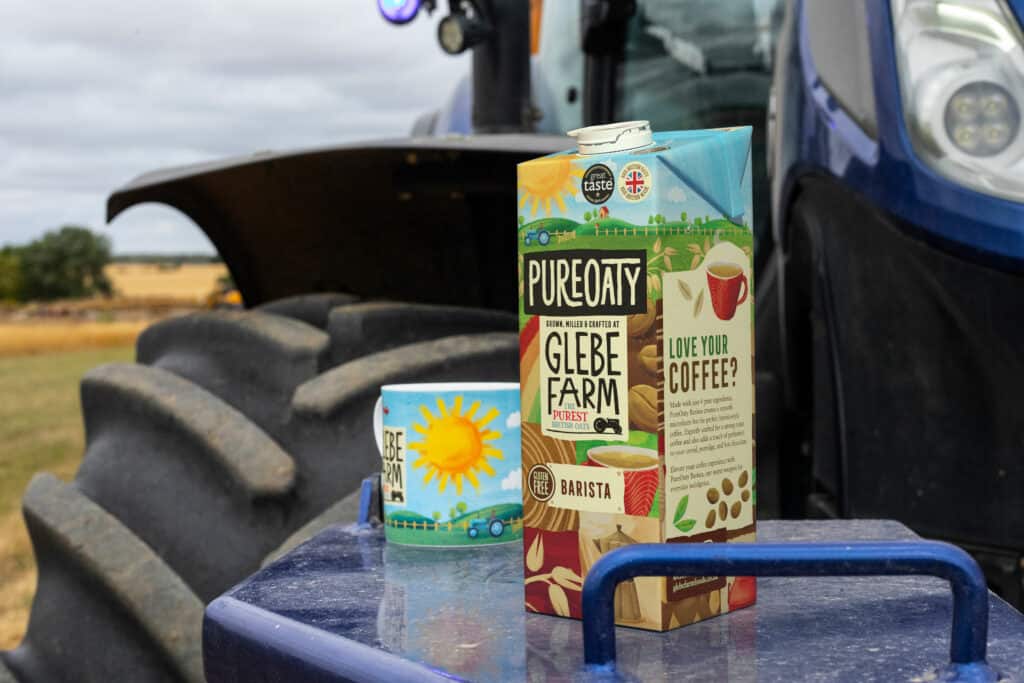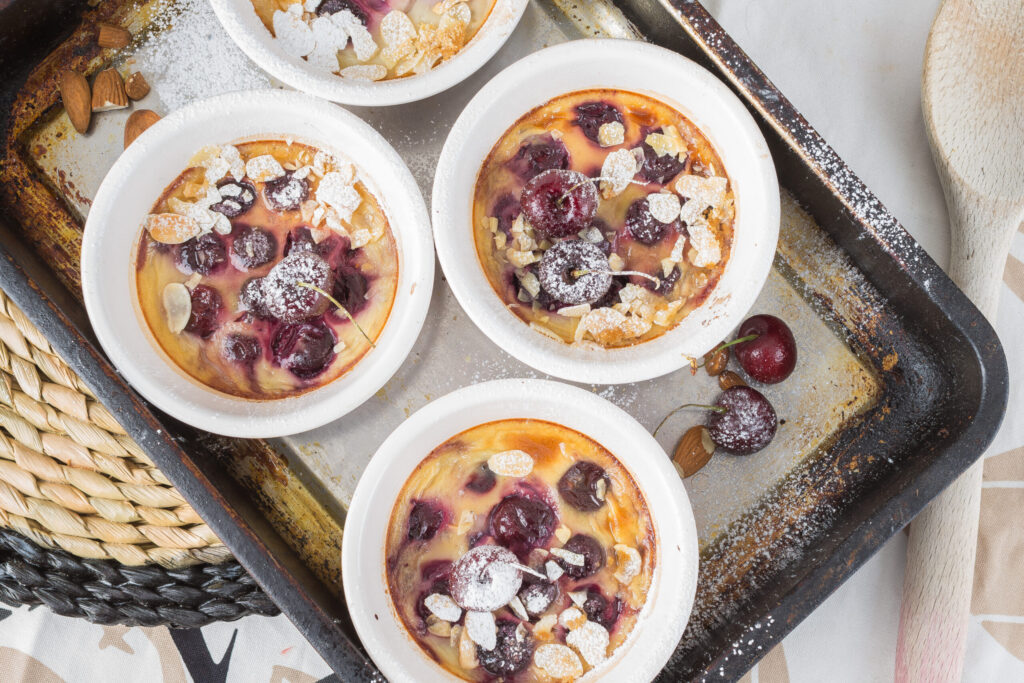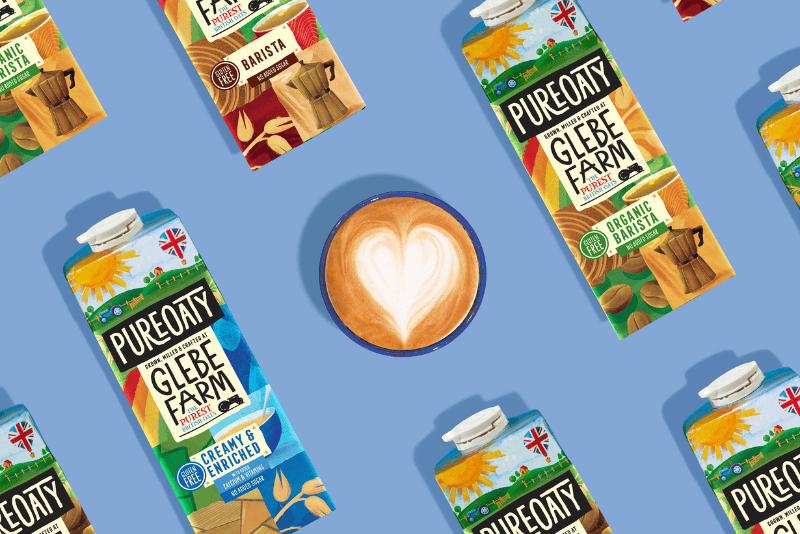
Glebe Farm Foods is an independent, family-owned business based in Cambridgeshire, led by siblings Philip and Rebecca Rayner. They are the only farm in the UK growing and processing 100% gluten-free oats, offering a range of award-winning products, including their PureOaty oat drink, porridge, and granola.
Philip Rayner, MD and Co-founder of Glebe Farm Foods, has a background in engineering and a passion for both food innovation and environmental sustainability. From humble beginnings as a traditional farm to becoming a leader in the gluten-free and plant-based market, Philip has always sought to create better options for consumers, with a focus on quality and traceability.
In this interview, Philip discusses the evolution of Glebe Farm Foods, the growth of the oat milk market, sustainability practices, and the future of plant-based foods.
Can you share some of the key milestones that Glebe Farms has achieved recently?
One of our proudest recent achievements has been the development and launch of PureOaty Tea-rrific, our latest oat drink NPD designed to complement the nation’s favourite drink, tea.
While tea remains the leading use of milk in the UK, there was a clear gap in the market for an oat-based alternative that truly works with it. Before Tea-rrific, many plant-based options struggled with issues like splitting or changing the flavour and colour of the brew.
With Tea-rrific, we set out with a clear mission to create an oat drink that delivers on taste, colour and stability, ensuring every cuppa is smooth, satisfying, and just as it should be. It’s crafted to complement tea, not overpower it. The result is a mellow, balanced oat drink that blends seamlessly, allowing the flavour of the tea to shine through.
Tea-rrific recently earned a star at the Great Taste Awards, an achievement we’re incredibly proud of. It’s a true testament to the quality and care that went into its creation.
As the founder and managing director of Glebe Farm Foods, how have your goals and vision for the company evolved over time?
My vision for the company has always been rooted in making delicious, wholesome food that’s farm-grown and retains all its natural goodness.
That connection to our land and to farming is at the heart of everything we do. It’s one of our real strengths and something that continues to set us apart in the market – particularly in the dairy alternatives space.
Originally, Glebe Farm was a traditional arable farm, growing crops like wheat and barley. We supplied to mills and food producers, but we always felt there was potential to do more with what we were growing, especially if we could keep more of the value on the farm. That thinking evolved in 2008, when we saw a real gap in the market for gluten-free oat-based products, as there simply wasn’t much available for people with coeliac disease or gluten intolerance.
We therefore had a laser focus on developing that part of the business and, before long, we were producing our own PureOaty range of 100% British, 100% gluten-free oat food and drink products as well as supporting other well-known food manufacturers such as Pip & Nut in developing their own products.
This journey has always been about staying close to our roots, while constantly innovating and adapting to offer something genuinely better, for people and for the planet.

How do you view the current growth of the oat milk market, and what’s driving its popularity compared to other plant-based milks?
The UK’s plant-based milks sector has rapidly evolved from niche to mainstream. However, despite this broader acceptance, the market has recently shown signs of strain.
Following several years of rapid growth, the category is now experiencing a slowdown. Challenging market conditions, particularly around pricing and evolving consumer expectations around taste and quality, are all contributing factors.
Recent data shows that the overall dairy alternatives market is declining by -1.6%, with plant-based milk accounting for 68% of volume sales, and currently declining at an even faster rate. Yet within this, oat milk stands out as a clear exception. As the largest segment of the category, making up around 46% of total sales, oat milk is the only dairy alternative showing year-on-year volume growth – up 2.8%.
One of the main reasons oat milk has done so well, especially oat drinks like PureOaty, is that it’s come a long way in taste, texture, and how well it works in everyday use, particularly in hot drinks.
People have found that oat milk steams and froths nicely, has a smooth, creamy feel, and a mild flavour that blends effortlessly into tea and coffee. However, oat milk has recently come under scrutiny, with questions being raised about how clean-label it really is and how it stacks up nutritionally against dairy milk.
Some of that concern is valid. Certain oat drinks are ultra-processed and contain added oils, sugars, and emulsifiers, and that’s muddied the waters for consumers.
But not all oat drinks are created equal. A well-made oat drink can still be clean, simple, yet taste good. Our PureOaty range is made with recognisable ingredients and includes no unnecessary nasties. We might be biased, but we think it tastes pretty great too.
What are the most common misconceptions about oat milk’s nutritional benefits, especially compared to dairy and other plant-based alternatives?
Oat milk is often misunderstood nutritionally, but it can offer several benefits, especially for those who follow a well-balanced, plant-based diet.
While it’s true that oat milk has less protein than dairy milk, it’s naturally rich in fibre, particularly beta-glucans, which support heart health by helping to lower cholesterol.
Most high-quality oat milks (like ours, of course) are also fortified with calcium, vitamin D, and B12, making them more nutritionally comparable to dairy.
Another common misconception worth raising is that oat milk isn’t naturally gluten-free. And while oats themselves don’t contain gluten, cross-contamination can occur during harvesting or processing.
Our supply chain is designed to be 100% gluten-free – from farm to table – to ensure our products meet our strict standards of <5ppm gluten, four times purer than the industry gluten-free standard of 20ppm. This ensures they are safe for those with coeliac disease or gluten intolerance.
We’re proud to produce the only oat drink on the UK market to carry Coeliac UK’s Crossed Grain trademark.

Can you explain the key sustainable practices you’ve implemented at Glebe Farm Foods and how they impact your carbon footprint?
For our business, sustainability starts at the source. We work closely with over 100 British farmers and source our oats from within a 70-mile radius of our Cambridgeshire farm. This hyperlocal approach significantly cuts down on transport emissions and supports the rural economy, while ensuring full traceability and quality.
As part of our regenerative farming commitment, we use dual cropping systems to support soil health and biodiversity. Water waste from our production site is also filtered through specially developed reed beds before being used to irrigate our fields, an efficient, closed-loop system that nurtures our land.
We also make use of the oat husks, which are the outer layer removed during processing, essentially a by-product that’s similar to straw. Rather than letting them go to waste, we reuse the husks to generate steam, which is an essential part of our production process, as all oats need to be cooked. The steam produced from burning the husks is used both to cook the oats and then to dry them back down again, creating a closed-loop, circular system.
The entire production process at Glebe Farm is also powered by renewable energy, including three biomass boilers fuelled by by-products from oat milling, eliminating the need for fossil fuels.
We’ve also expanded our solar capacity by installing an additional 467kW of roof-mounted solar panels to power our factories and are actively exploring paper-based packaging to further reduce plastic use and environmental impact.
On a sunny day, we can confidently say we use zero fossil fuel electricity.
What innovations do you believe could drive more sustainable practices in plant-based food production?
One of the biggest game changers will be the wider adoption of regenerative agriculture, improving soil health and boosting biodiversity, which sets a solid foundation for sustainability.
I’m also really interested to see how AI can play a huge role in this space. From farming to production and transport, I’m confident AI and automation will help reduce emissions and food waste and make the whole plant-based ecosystem more resilient and climate-conscious.
But beyond technology, one of the most impactful moves we can make in the UK plant-based sector is to support British farmers and businesses by sourcing locally.
This approach not only reduces carbon emissions linked to transportation and imports but also strengthens traceability and supply chain resilience.
UK supermarkets must play a role in this shift by prioritising and stocking British products. For too long, the UK retail shelves have been dominated by imported products. That simply doesn’t stack up in a world where supporting local farming and shortening food miles are no longer optional – they’re essential.

Where do you see the plant-based milk market heading in the next 5–10 years, and what trends should industry leaders watch for?
Oat milk is expected to maintain its position as the leading plant-based alternative. Its creamy texture, low allergen profile, and excellent performance in coffee applications give it broad and lasting appeal.
Affordability will become an increasingly important focus for producers. Plant-based milks come at a premium price compared to traditional dairy, and there’s growing pressure to reduce costs without compromising on quality or taste. This could see brands in this space simplifying recipes, scaling up production, or investing in more efficient supply chains.
The rise of private label plant-based lines is also reshaping the market, making non-dairy options more accessible to a wider audience. However, these products often fall short on traceability or sustainability, areas where established brands can continue to lead.
Another trend will be the evolution of flavoured plant-based milk drinks, especially in ready-to-drink formats. These are becoming increasingly popular as consumers seek on-the-go options that also satisfy evolving flavour preferences.
From classics like vanilla to trend-driven flavours like matcha, which is having a big moment this year, RTD plant-based beverages are carving out their own niche in the functional drink space.
Looking ahead, where do you see Glebe Farm Foods in the next 5–10 years, and what upcoming product innovations or developments are you most excited about as part of your long-term goals for the company?
Glebe Farm Foods will continue to grow as a leading force in the dairy alternatives market, and we’re aiming to expand our listings to make our PureOaty range more accessible to people across the UK and beyond.
Looking ahead, we’re excited to be developing new oat-based innovations and exploring new flavour profiling to offer even more variety to our customers. We’re also working on more fortified options to create products that come even closer to traditional dairy in both nutrition and taste.
While we can’t share too much just yet, there are some exciting developments in the pipeline, and we’re really looking forward to unveiling them soon.





































































